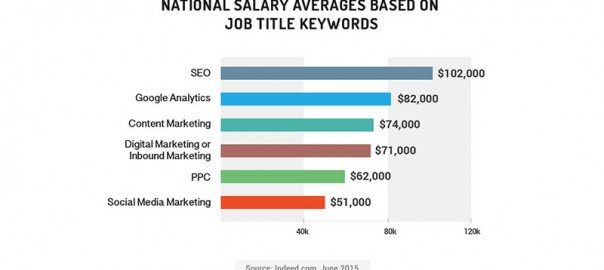
Once upon a time, being an expert in social media was a big deal. The ability to build a community on Twitter and a big following on Facebook and LinkedIn was somewhat rare, and as a result, many marketers started referring to themselves as social media gurus, mavens, and ninjas.
But something funny happened: social media became mainstream. Social media started making its way into many areas of the business outside of marketing and PR. Slowly but surely, social media became a required skill for sales, HR (recruiters in particular) and customer service.
In many ways, social media became everyone’s job. Thus began the early death of the social media manager.
Now a new study provides more proof that social media skills alone won’t get you far in your marketing career. That’s because while there are many social media jobs, companies want more than just a knowledge of how to tweet, snap and pin.
Conducted by Fractl and Moz, the study looks at the growth of inbound marketing jobs and the popularity and growth of various inbound marketing positions. The study analyzed 75,000 Indeed job listings containing keywords such as “digital marketing,” “inbound marketing,” “content marketing,” “SEO,” “social media,” “Google Analytics” and “PPC.” The study’s goal was to determine the demand for inbound marketing roles in the job market.
One key finding: social media skills are in demand. They are listed as a requirement in almost half (46.7%) of the job ads analyzed. But as Hubspot notes, that high volume of listings doesn’t necessarily mean there are more jobs for marketers specializing in social media. Indeed, social media is now a required skill for recruitment and customer support roles, contributing to the high volume of roles for this skill.
But if you really, really want to work as a social media manager, there are many jobs available. The volume of social media roles on Indeed is trending up. It is one of Indeed’s top 10 job trends. So that’s the good news.
The bad news is that while there are many social media jobs available, they don’t pay well relative to other inbound marketing roles. Social media management jobs have an average salary of $ 51,000—the lowest of all the buckets the study examined. In contrast, SEO jobs have an average annual salary of $ 102,000 and content marketing roles are averaging at $ 74,000.

Of course, you shouldn’t make career choices based only on salary. But the high number of social media roles and the low salary for them is troubling. I have a few theories why this is the case.
First, it could be that businesses simply don’t see social media skills as that valuable (at least compared to the other roles). They see some value out of it, but they don’t see it as important as the other roles. This is not entirely surprising. For one, despite all the hype about social media, email still beats social. And with the decline of organic social media reach, companies are struggling to see ROI from a purely earned media perspective. As the social media landscape increasingly becomes about a paid play, the role of social media community managers become less important.
The second possible explanation is that the stereotype of social media managers as young, fresh-out-of-college professionals is still very much alive. The average salary could be reflective of the fact that companies want (or perhaps expect) more junior people to apply.
Either way though, these stats are another reminder that if you work in social media, you need to intentionally start developing other marketing skills. Companies expect more from marketers. They want us to have an understanding other inbound marketing tactics. They want marketers who also know PPC, SEO and content marketing, in addition to social media.
Are social media skills still important? Absolutely. But the Moz/Fractl study shows that social media skills are no longer a competitive advantage. Instead, they’re now simply expected from marketing candidates.
To become indispensable, social media marketers need to become full-stack marketers, capable of delivering more value to the company. Remaining competitive in the marketing job market requires that social media managers evolve. The time to acquire other inbound skills—and become a more rounded marketer—is now.
Digital & Social Articles on Business 2 Community(114)







